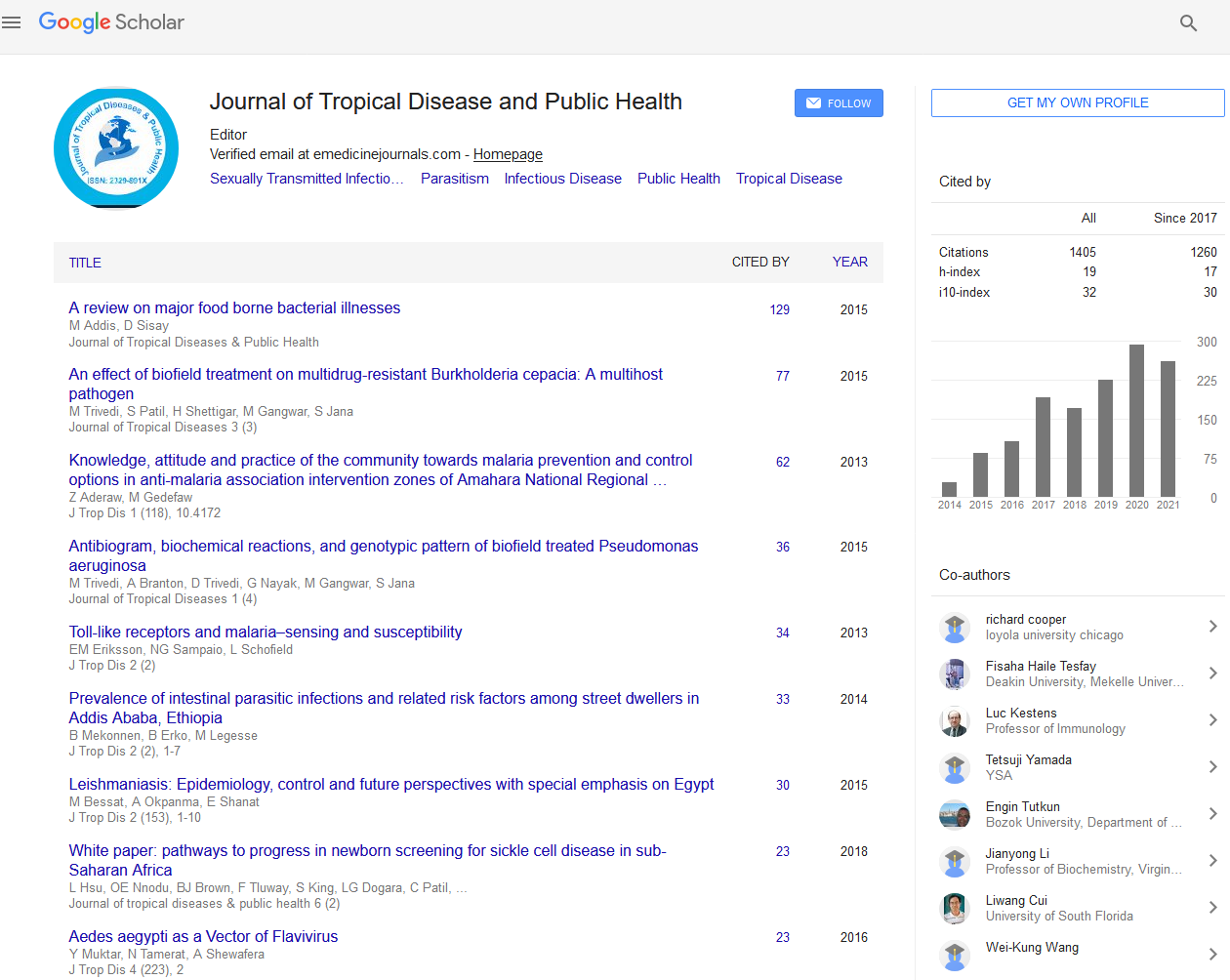Indexed In
- Open J Gate
- Academic Keys
- ResearchBible
- China National Knowledge Infrastructure (CNKI)
- Centre for Agriculture and Biosciences International (CABI)
- RefSeek
- Hamdard University
- EBSCO A-Z
- OCLC- WorldCat
- CABI full text
- Publons
- Geneva Foundation for Medical Education and Research
- Google Scholar
Useful Links
Share This Page
Journal Flyer

Open Access Journals
- Agri and Aquaculture
- Biochemistry
- Bioinformatics & Systems Biology
- Business & Management
- Chemistry
- Clinical Sciences
- Engineering
- Food & Nutrition
- General Science
- Genetics & Molecular Biology
- Immunology & Microbiology
- Medical Sciences
- Neuroscience & Psychology
- Nursing & Health Care
- Pharmaceutical Sciences
Abstract
Determinant Factors for Implementing Polio Eradication Activities under Security Compromised Settings of Pakistan
Netsanet W Fetene and Asfandyar Sherani
Background: Today, the world is nearer than it has ever been to polio eradication. However, ongoing Wild Polio Virus 1(WPV1) transmission in parts of Pakistan remains a substantial threat to the Global Polio Eradication Initiative goal of a polio-free world. In Pakistan, the security environment puts polio workers in danger and makes some areas inaccessible. This research made experts on polio program reach a consensus on key determinant factors for the successful implementation of polio eradication activities while considering the context of the security compromised setting of Pakistan.
Method: The Delphi expert panel discussion method was applied. Experts in the field of polio eradication who worked in Baluchistan province of Pakistan were invited. Two rounds of expert panel discussion were conducted. Key challenges and recommendations from the first round were assessed and incorporated to the second round Likert scale questionnaire to arrive at a consensus. The Expert’s consensus was defined to be obtained if 75% or more of the experts agreed on an issue.
Result: During the first round, 16 experts responded, out of the 18 invited (88% response rate). The second round questionnaire was sent to the 16 experts, of which 15 experts responded (93% response rate). The majority of experts (93%) agreed that the health department did not take part actively in pre-campaign activities. All experts (100%) agreed that teams and Area in Charges (AIC), who supervise vaccinator teams, were not incorporating the required changes that were happening on the ground to their micro-plan. All experts (100%) agreed that the AICs had no accountability attached to their roles. Most (86%) experts agreed that teams who attended training didn’t participate during campaign days. The majority (86%) of experts agreed that the campaign compilation data was not genuine. There was a lack of contingency and smart planning for the evolving security situation (80% of experts).The majority of experts (86%) agreed that the polio campaign was highly linked with making money. The majority of experts (93%) agreed that sweeping method was prone to miss houses and children.
Conclusion: It was deemed that the major factors affecting the polio eradication program in a security compromised setting were found to be poor preparation during the pre-campaign phase, low skilled polio teams involvement, and poor campaign monitoring and reporting. It was indicated that proper micro-planning and security planning, increasing the number of campaign monitors and the receipt of timely feed-back of intra and post-campaign monitoring results improves polio campaign achievements.


